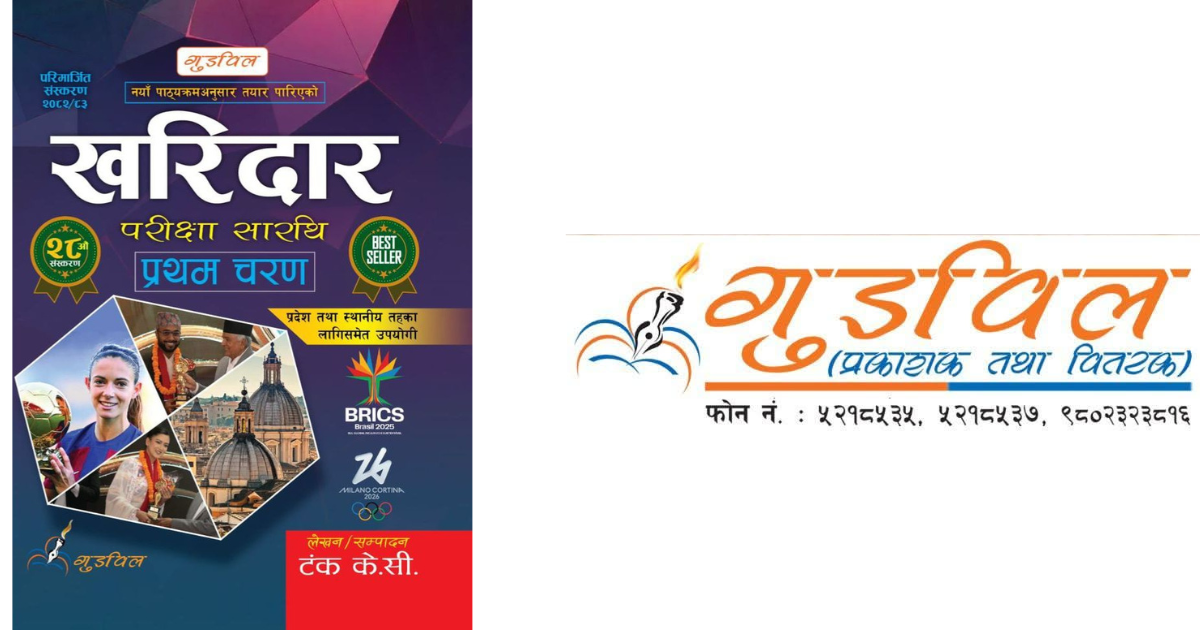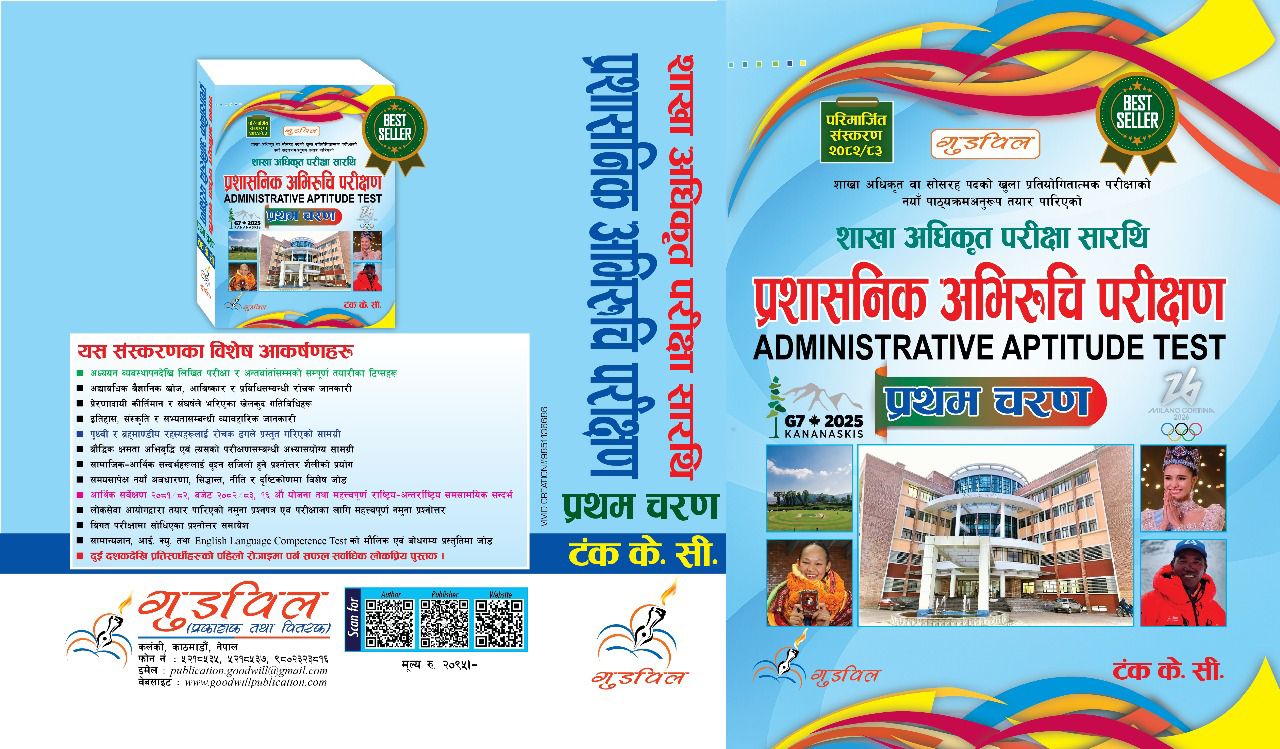
Sakha Adhikrit Sarathi – Level 6 by Tanka KC: Your Ultimate Guide to Government Service Exams
Preparing for government service in Nepal is highly competitive, and having the right book can make a difference. Sakha Adhikrit Sarathi by Tanka KC isn’t just a book — it’s a companion for your success. Don’t wait – grab your copy and take the first step toward your dream career...
Author: Tanka KC
Publisher: Goodwill
Publication.
Category: Lok Sewa Aayog
– Government Service Preparation
Target Exam: Section
Officer (Sakha Adhikrit), Level 6
Language: Nepali
Edition: Updated (Based
on latest syllabus)
Pages: 560+ (Approx.)
Are you preparing for
the Sakha Adhikrit (Section Officer) Level 6 examination in Nepal? If
yes, then “Sakha Adhikrit Sarathi” by Tanka KC is the book you’ve
been waiting for!
Why This Book?
Written by renowned
author and educator Tanka KC, this book is designed specifically for aspirants
appearing in Lok Sewa Aayog (PSC) competitive exams. Whether you're
targeting the administrative, account, or other technical streams, this
comprehensive guide helps you cover all essential topics in one place.
"Sakha Adhikrit Sarathi – Level
6" is a comprehensive and syllabus-based preparation guide
tailored for aspirants of the Sakha Adhikrit (Section Officer) examination
conducted by Lok Sewa Aayog (Public Service
Commission) Nepal. This book is an ideal solution for all those
seeking success in administrative level exams and looking for a one-stop
resource.
Written by renowned author Tanka KC, the book
provides in-depth coverage of all essential subjects, exam trends, and question
patterns necessary for cracking the Level 6 exam confidently.
Key Features:
Updated Syllabus Coverage
Covers the latest syllabus prescribed by the Public Service Commission
(PSC) of Nepal.
Conceptual Clarity &
Smart Tricks
Includes deep explanations, memory hacks, and exam-oriented strategies.
Model Questions with
Solutions
Packed with MCQs and Subjective Questions with solved answers based
on previous years' trends.
Quick Revision Notes
Perfect for last-minute revision with compact summaries and key points.
Current Affairs &
Policy Analysis
Updated sections on Nepal’s recent policies, acts, and governance trends.
About the Author
Tanka KC is a
reputed name in Nepal’s competitive exam preparation scene. His books are
trusted by thousands of PSC aspirants for their simplicity, accuracy, and exam
relevance.
Who Should Read This?
PSC Level 6 (Sakha
Adhikrit) Aspirants
Government job seekers
preparing for Section Officer exams
Candidates aiming to
master General Knowledge, Administration, and Governance
Paper I: -Administrative Aptitude Test
Part (A)
1. General Awareness 50 × 1= 50 Marks
1.1 Geography - physical, social and economic geography of Nepal and the World
1.2 History, Culture and Social System
1.2.1 Major historical events of the World
1.2.2 Political, economical and socio-cultural aspects of ancient, medieval and modern Nepalese history
1.2.3 People's Movements for democracy in Nepal
1.2.4 Prevalent religions, culture, ethnicity, languages, literature and art of Nepal
1.3 Polity and Governance – constitution, political system, right based issues and evolution of the Nepalese Administrative System
1.4 Economic Development
1.4.1 Infrastructure development in Nepal (agriculture, industry, trade, tourism, transportation, communication, education, health and electricity)
1.4.2 The Nepalese economic issues relating to planning, mobilization of resources, growth, development and employment
1.4.3 Nepal's economic interaction with the World
1.5 General Issues on sustainable development, environmental ecology, ecological preservation, bio-diversity, climate change, demography, urbanization, settlement, pollution, conservation of natural resources and national heritage
1.6 Science and Technology
1.6.1 Major scientific discoveries and inventions, famous scientists and their contributions
1.6.2 Impact of science & technology in human life and society
1.6.3 General information on evolution, heredity, health and diseases
1.7 International Affairs and International Institutions
1.7.1 Nepal's relations with the SAARC member countries and other countries such as China, United States of America, United Kingdom, Russia, France, Germany, Switzerland and Japan
1.7.2 UN System, multilateral arrangements and Nepal
1.8 Major Events and Current Affairs of National and International Importance; such as political, social, cultural, economic, scientific, sports, books, prizes/rewards, arts, literature and music as well as noted personalities and thinkers
2. Aptitude Test 30 × 1 = 30 Marks
2.1 Verbal reasoning such as series, analogy, classification, coding-decoding, insert the missing character, common property, matrices, direction and distance sense test, ranking order, assertion and reason, induction, deduction, courses of action, etc 6 × 1 = 6 Marks
2.2 Non-verbal reasoning such as series, analogy, classification, Venn diagrams, matrices, construction of squares and triangles, and figure formation and analysis, dot situation, water images, mirror images, embedded figures, etc. 6 × 1 = 6 Marks
2.3 Quantitative aptitude such as arithmetical reasoning / operation, percentage, fraction, decimal, ratio, average, loss, profit, date/calendar, time and work, etc. 6 × 1 = 6 Marks
2.4 General mental ability, logical reasoning and analytical ability 6 × 1 = 6 Marks
2.5 Data interpretation - charts, graphs, tables, data sufficiency 6 × 1 = 6 Marks
3. English Language Competence Test 20 × 1 = 20 Marks
3.1 Comprehension: 5 × 1= 5 Marks
Questions will be asked based on the passage given. The questions will try to accommodate the following areas:
- Fact finding, Inferential, Core theme, True/false identification, Issues raised and Language based
3.2 Vocabulary: 7 × 1 = 7 Marks
Questions will be asked to assess their grasp on the English language vocabulary. The questions will be of the following nature:
- Meaning of the words (literal /figurative/contextual), Single word for expressions, Synonyms/antonyms, Derivatives and Homonyms/homophones
3.3 Syntactic ability: 8 × 1 = 8 Marks
Questions will be asked to assess the syntactic ability of the candidates. The questions will be based on the following categories:
- Agreement, Tense aspect, Parallel structures, Clauses, Modifier, Conditionals, Phrasal expressions, Shifts (tense, number, person), Transformations, Varieties, Prepositions / conjunctions and Parts of speech
Note: - This above English Language Competence Test syllabus is devised for assessing the proficiency of the English language of candidates. With the view to assess the candidates’ language competence, the syllabus aims:
to test the understanding of their language through reading comprehension,
to map the range of their vocabulary,
to examine their syntactic ability.
The nature and standard of questions in English Language Competence Test will be such that an educated Class XII level person will be able to answer them without any specialized study.

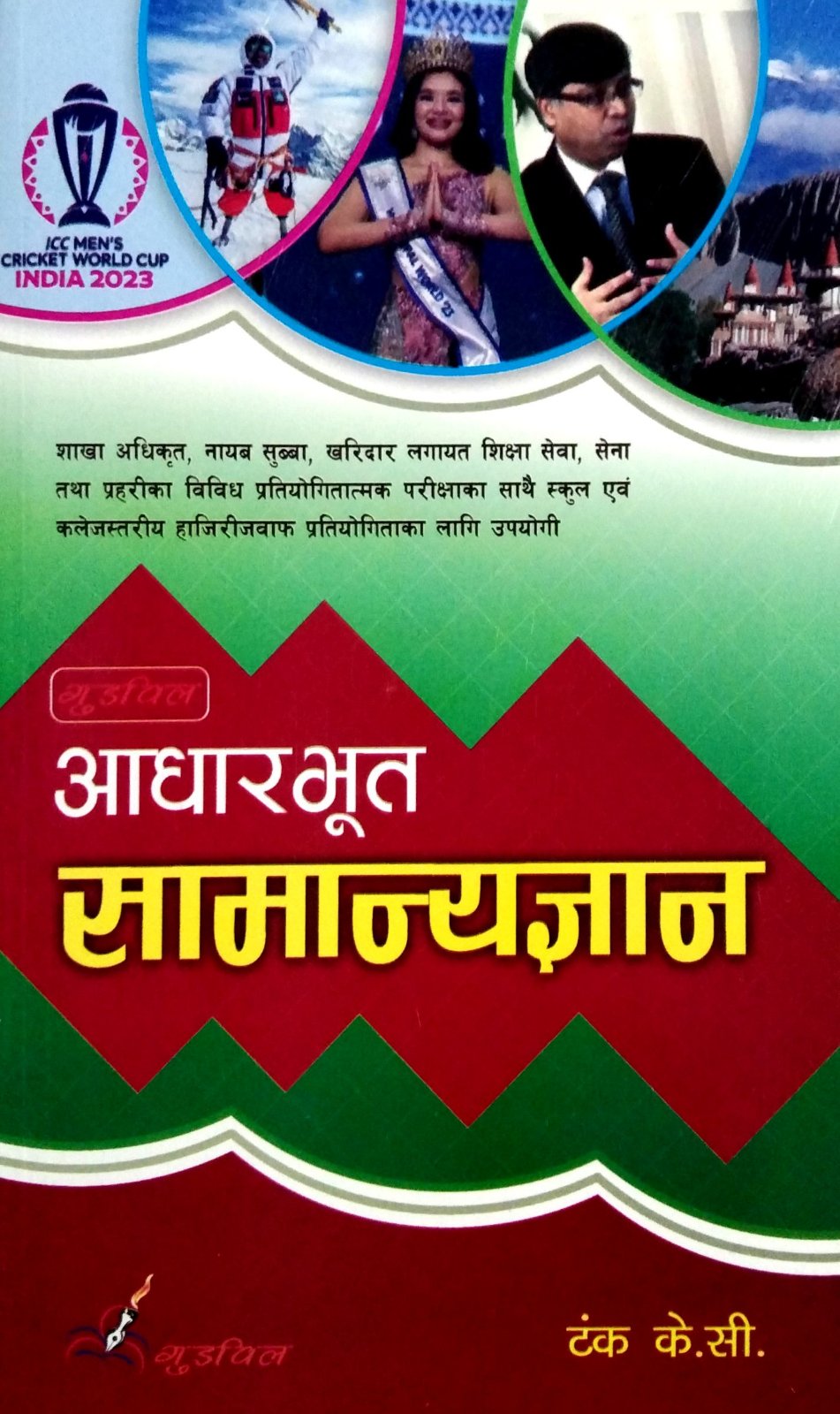
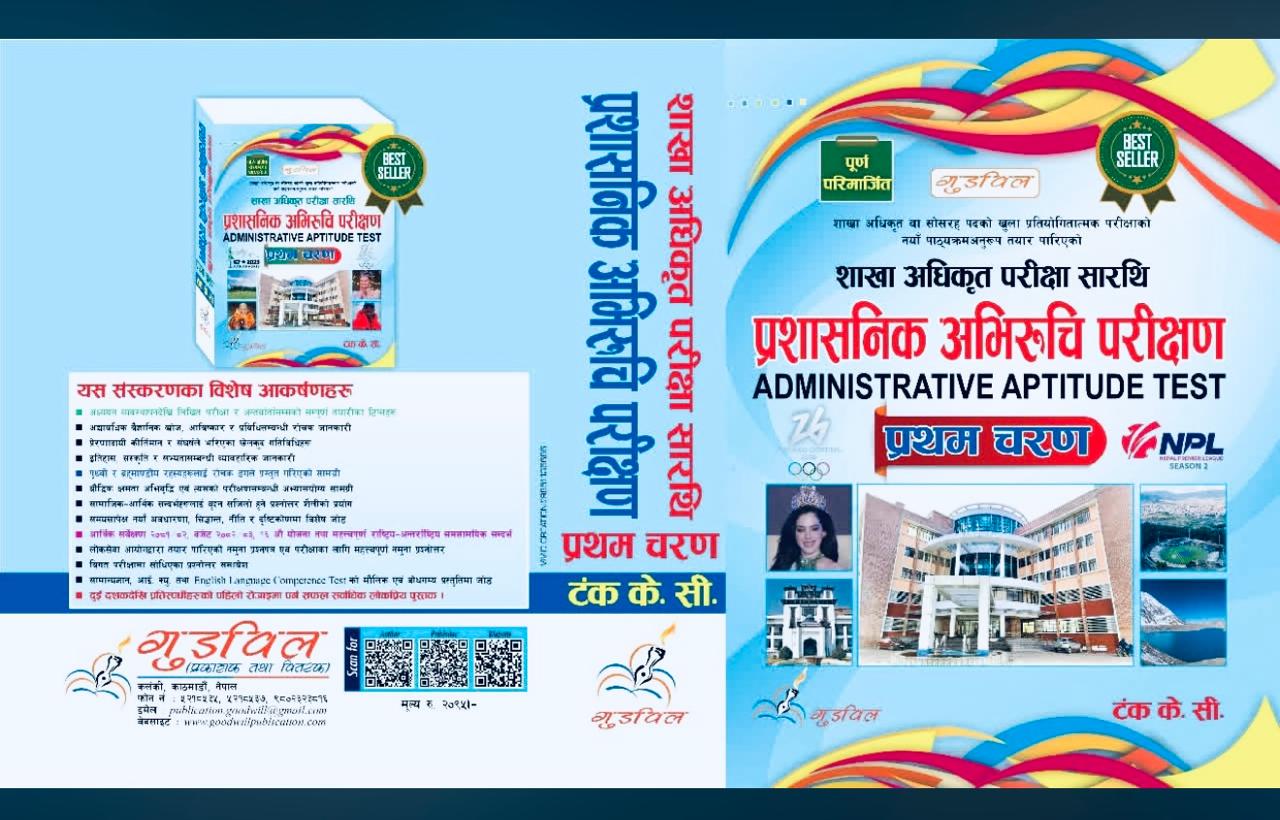
.png)
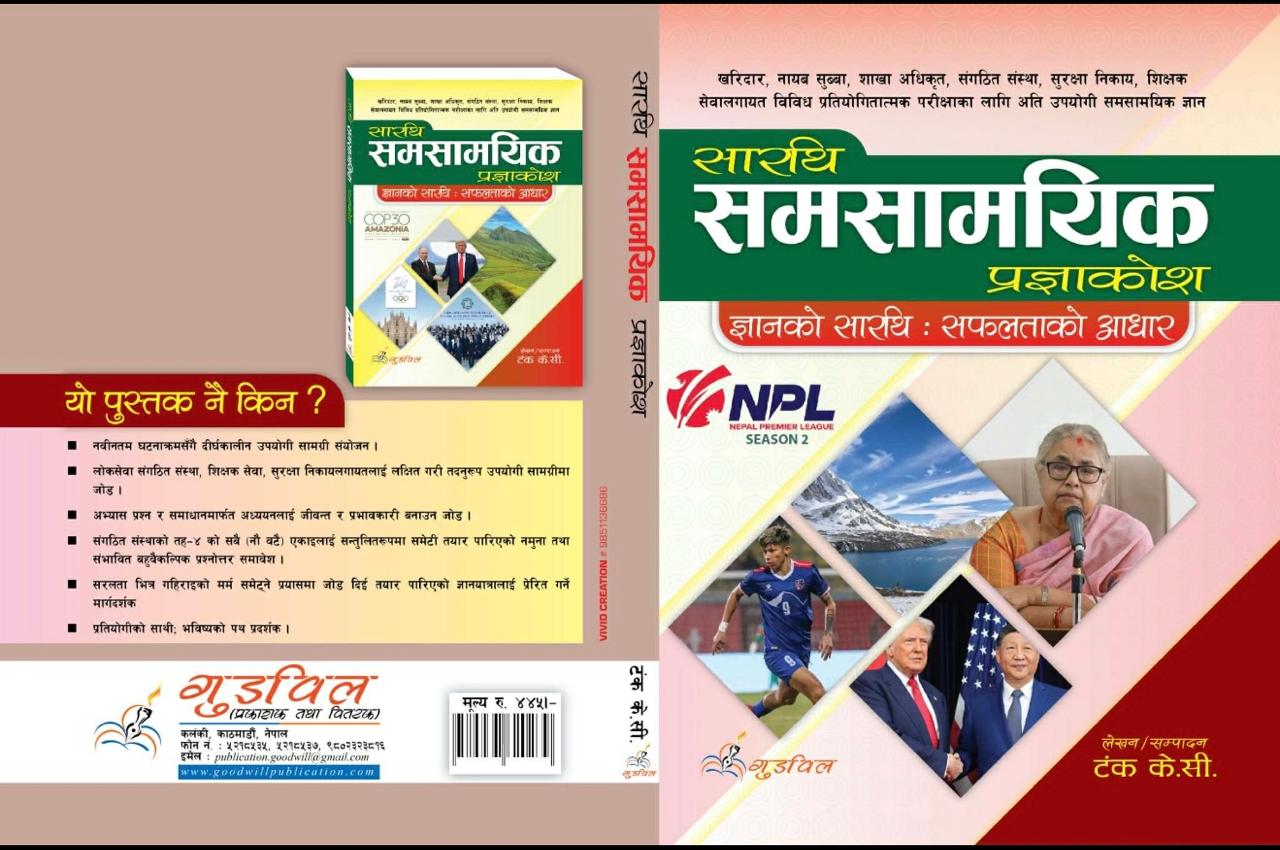
.png)
